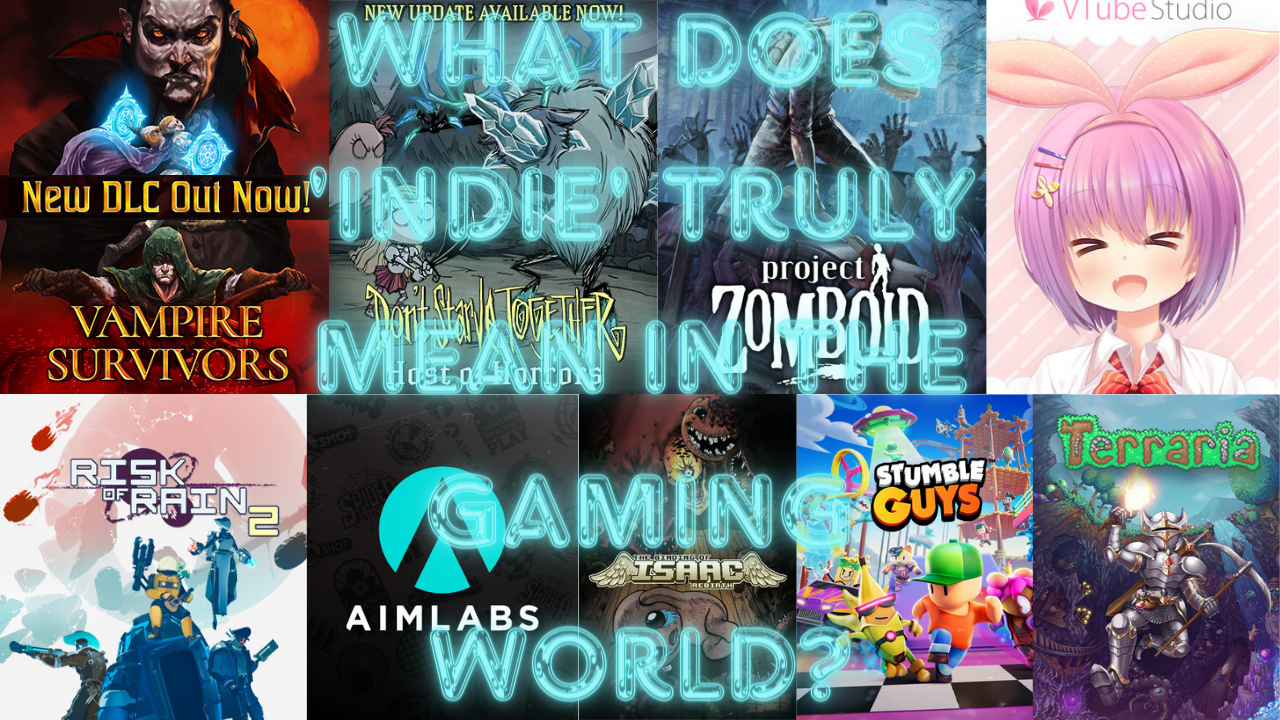Introduction
The term “indie” refers to a prominent and well-known game genre. Let’s define “indie” in games and explore indie game makers’ intriguing universe.
Characteristics of Indie Games

Creative Freedom
Developers have unmatched creative freedom with indie games. Indie games often defy market assumptions and offer unique and inventive gameplay.
Smaller Development Teams
Smaller, close-knit teams typically create indie games, encouraging a collaborative and hands-on approach to game development. This intimacy allows for a more personalized touch, and developers can pour their passion into every aspect of the game.
Unique Artistic Expression
Indie games are celebrated for their diverse and often unconventional artistic styles. Since corporate demands do not impose restrictions on developers, they are free to experiment with art forms that might not fit into popular gaming.
The Evolution of Indie Game Development

Early Years of Indie Games
Developers seeking independence from established publishing models spurred the indie gaming movement in the early 2000s. This era saw groundbreaking titles that questioned the status quo.
Impact of Digital Distribution Platforms
Digital distribution channels like Steam help small games succeed. These platforms allowed indie creators to reach a worldwide audience without a huge marketing expense.
Success Stories in Indie Gaming

Stardew Valley
Stardew Valley, developed by a sole creator, became a phenomenon, captivating players with its charming farming simulation and delightful characters. The success of Stardew Valley demonstrated that a compelling game could come from the passion of a single individual.
Hollow Knight
Hollow Knight, a beautifully crafted indie title, showcased the potential of smaller teams to deliver rich, immersive experiences. Its intricate world design and challenging gameplay earned it widespread acclaim.
Celeste
Celeste, a platformer with a touching narrative, highlighted the emotional depth that indie games can achieve. It received praise not only for its gameplay mechanics but also for its portrayal of mental health themes.
Challenges Faced by Indie Game Developers

Limited Budgets
One of the significant challenges indie developers face is working with limited budgets. Unlike large game studios, indie teams may struggle to secure funding, impacting the scale and scope of their projects.
Marketing Struggles
Breaking through the noise in a saturated gaming market can be daunting for indie developers. Limited resources often translate to modest marketing campaigns, making it crucial for indie games to rely on word-of-mouth and community support.
Competition with AAA Titles
In a sector where AAA blockbusters predominate, independent games coexist. While indie games offer unique experiences, they often face challenges in attracting attention amid the massive marketing campaigns of major studios.
Indie Games and Innovation

Pushing Boundaries in Gameplay
Indie games are known for pushing the boundaries of traditional gameplay. From unconventional mechanics to thought-provoking puzzles, indie titles often redefine what players expect from the gaming experience.
Experimental Narratives
Indie developers frequently explore unconventional narratives, tackling complex themes and emotions. This willingness to experiment with storytelling sets indie games apart, offering players narratives that resonate on a deeper level.
Indie Games and Community Engagement

Importance of Player Feedback
Indie developers value player feedback immensely. The close relationship between developers and their audience allows for rapid iteration, with updates and patches addressing player concerns and suggestions.
Building Dedicated Fan Bases
Successful indie games often build dedicated fan bases that appreciate the unique qualities of the game. This sense of community fosters a supportive environment, encouraging developers to continue their creative endeavors.
Impact of Indie Games on the Gaming Industry

Influence on Game Design Trends
The success of indie games has had a profound impact on game design trends. Mainstream titles now incorporate elements popularized by indie games, leading to a more diverse and innovative gaming landscape.
Recognition and Awards
Indie games are increasingly receiving recognition at prestigious industry awards. Titles like Journey and Undertale have not only won awards but have also left an indelible mark on the gaming community.
Indie Games and Cultural Representation

Diverse Themes and Characters
Indie games often explore diverse themes and characters, challenging traditional norms. This inclusivity allows players to experience stories and perspectives that may not be prevalent in mainstream gaming.
Inclusivity in Indie Game Development
Indie game development welcomes diverse developers. Due to the range of indie game voices, gaming experiences are richer.
The Future of Indie Games

Technological Advancements
As technology advances, indie developers have more powerful tools. This allows for more ambitious and visually appealing indie games on fewer budgets.
Continued Growth and Innovation
Indie games have bright prospects. With a rising audience and a growing developer toolbox, indie gaming will continue to grow and innovate.
Also Read: Starship Troopers: Extermination – Unleashing the Galactic Thrill on Xbox
FAQs
Are all indie games made by tiny teams?
Several indie game developers operate alone, while others have larger teams.
How do indie games impact mainstream game development?
Indie games often influence mainstream game development by introducing innovative gameplay mechanics and storytelling approaches.
Can Indies match AAA games in quality?
Yes, many indie games have high-quality production qualities, indicating that smaller developers can create compelling experiences.
Digital distribution channels’ impact on indie game success?
Digital distribution systems let indie developers reach players worldwide without traditional publication routes.
What can players do for indie game developers?
Players may assist indie game developers by buying, reviewing, and promoting unique and entertaining games.
Conclusion
Indie games drive innovation and originality in gaming. Indie games are vital to the business due to their unique experiences and intimate developer-player relationships. Indie games’ growth promises a more diverse and engaging gaming landscape in the future.

1 thought on “Decoding Indie: What Does ‘Indie’ Truly Mean in the Gaming World?”